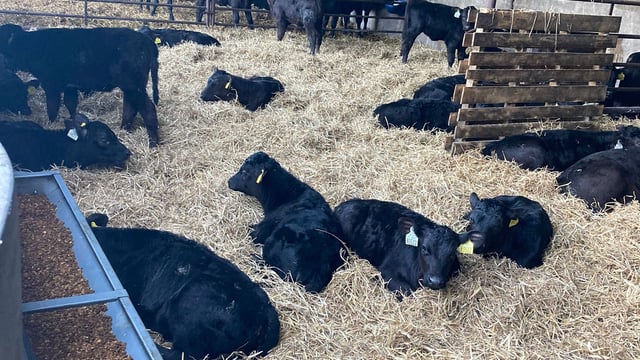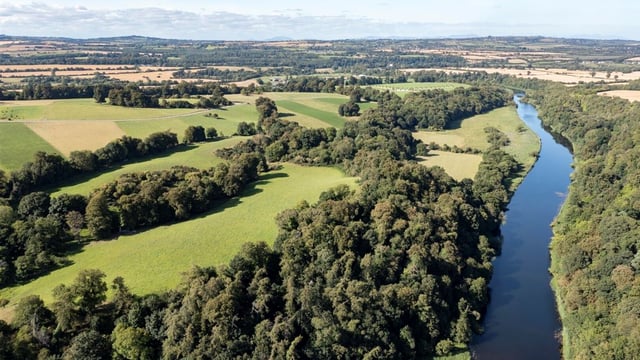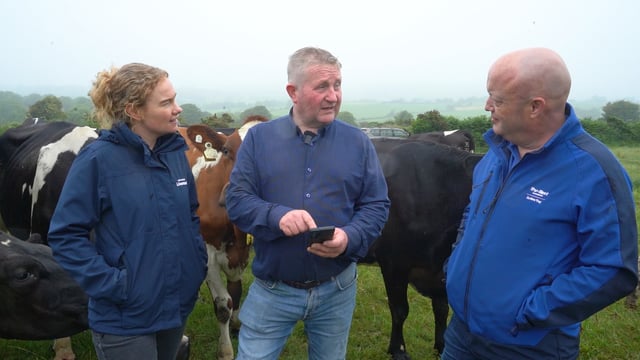Sponsored Article

Sponsored Article
How a Cork farmer boosted lamb performance
Sponsored Article

Katie Shanahan, a 29-year-old farmer from west Cork, is making a significant impact in Ireland’s livestock industry.
Managing a pedigree Charollais sheep flock and a small herd of beef cattle alongside her father and brother, she is dedicated to breeding high-quality livestock with strong genetics.
Their cattle herd includes a mix of continental heifers and a new focus on shorthorn suckler beef cows, valued for their maternal traits and efficiency.
On the sheep side, Katie plays a key role in running Turret Charollais, a prize-winning flock that produces top breeding rams for both commercial and pedigree breeders across Ireland.
As proud members of the pedigree Charollais Sheep Society, the family focuses on performance, structure, and efficiency, ensuring their rams help improve flocks nationwide.
A farmer, marketer and social media influencer, beyond farming, Katie is a marketing executive for Herdwatch, where she helps farmers streamline their operations using digital farm management solutions.
She blends her love for agriculture and technology, ensuring farmers can make better, data-driven decisions.
The Cork farmer is also a well-known figure on social media, with a growing following of 30,000 followers on Instagram and 150,000 on TikTok, where she shares insights into farming life, livestock breeding, and agricultural innovation.
Her engaging content has helped educate and inspire both fellow farmers and the wider public.
Like many sheep farmers, Katie has faced challenges with coccidiosis, a common disease that can severely impact lamb growth and farm efficiency.
Given that she starts selling her pedigree lambs early in the year, she needed a solution that would prevent setbacks and ensure consistent performance.
Since introducing Dycoxan, Cork farmer Katie has seen remarkable improvements in lamb health and performance. Key benefits include:
- Fast-acting protection - prevents early setbacks, keeping lambs on track for sale;
- Improved growth rates - ensures steady weight gain, crucial for early pedigree sales;
- Consistent performance - healthier lambs, reduced stress, and fewer losses;
- Easy application - simple to administer, making farm management more efficient.
Thanks to Dycoxan, the Cork farmer can confidently prepare her lambs for early sales, maintaining her farm’s high breeding standards.
With a passion for genetics, efficiency, and innovation, she continues to grow her farming legacy while inspiring thousands through her digital platforms.
Coccidiosis is a disease caused by microscopic organisms called protozoa. Animals consume coccidia eggs when grazing or simply exploring their surroundings.
Ingested coccidia eggs pass through the digestive system, multiply and penetrate cells in the gut lining. Within these cells the organisms develop further and multiply.
Eventually the cells burst, releasing thousands more infective oocysts. The bursting of these cells leads to the breakdown of the delicate gut lining.
As the gut lining is responsible for nutrient absorption in our animal, a compromised gut can lead to significant production losses and in some cases even death.
The released eggs pass out in the animal’s dung and the cycle begins again.
Clinical symptoms of coccidiosis are:
- Bloody/black diarrhoea;
- Straining;
- Fluid loss;
- Anaemia;
- Lethargic animals;
- Lack of appetite;
- Death.
Cattle and sheep kept under conventional conditions unavoidably experience infection with coccidia at some point.
However, the percentage of animals in an infected group with clinical symptoms is typically low and often zero.
Diseases that negatively affect our animal without pronounced symptoms are deemed as ‘sub-clinical’.
Sub-clinical coccidiosis can be more financially damaging to a farm than clinical cases as there may be no signs of infection.
In nine peer-reviewed scientific trials that detected high burdens of coccidia eggs in calf and lamb faecal samples, only 4% of animals showed clinical symptoms of coccidiosis.
Anti-coccidials such as Dycoxan is an ingredient that disrupts the coccidia life-cycle by inhibiting development and multiplication.
Administered at the correct time, it will reduce both potential damage to the animal's gut and contamination of the animal's environment, and ensure herds like those owned by Cork farmer Katie stay healthy.
Sponsored Article








